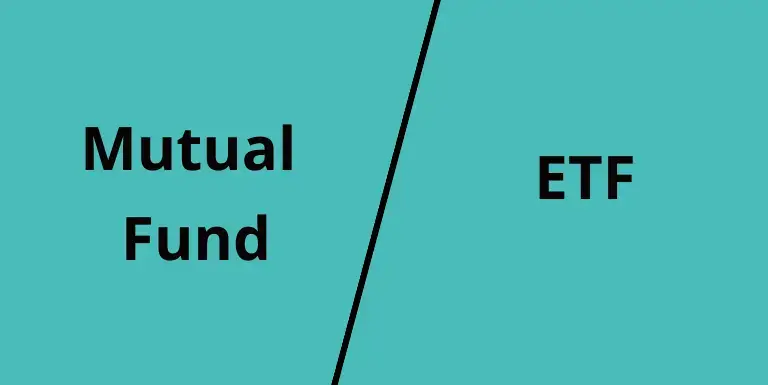Difference between Mutual Fund and ETF : Mutual funds became popular in the United States since the 1920s. They started out originally as close-ended funds with a fixed number of shares. In 1993, ETFs have been made available.
They were recognized then as the traditional index funds. In the modern time, both of these funds have become open-ended in the sense that investment shares can now be adjusted based on supply and demand.
Aside from that, these two funds involve fairly the same portfolios of stocks, bonds, and commodities.
They also adhere to the same trading regulations mandated by the US Securities and Exchange Commission. So what is the difference between mutual fund and ETF?
What is Mutual Fund
A mutual fund is a pool of different individual shares of stocks, bonds, and/or commodities.
It is professionally managed in that these shares are particularly chosen by a fund manager or a management team.
A mutual fund is handled by an investment company who is responsible for the trading and tracking of the different shares in order to purchase securities.
mutual fund values the assets based on the individual investments managed in the mutual fund. The price is then set at the closing of each trading day or session.
Hence, trading can only be executed at the end of the day. So if a trade order is placed later than that, it will be executed on the next day.
The assets are traded on stock exchanges against other constituent investors.
The investor himself also has the option to have the funds professionally managed.
Index tracking with mutual funds is administered by the company handling the funds. They usually do this through the fund manager or the management team.
And then they pick out the holdings to beat the index with which they judge their performance against.

What is ETF
Meanwhile, an ETF (or exchange-traded fund) is a personally managed investment involving the same types of assets as a mutual fund.
ETF carries out trading at any point of the trading day. By the demand of investors, the prices of stocks are set each moment based on present and ongoing market conditions.
There is no actual minimum holding period with an ETF.
On the contrary, ETF investors have the flexibility to do index-tracking personally or have it handled by another professional. ETFs track either a stock or a bond index.
And then investors will contest with the price movements and the returns of that particular index by organizing a portfolio that can closely compare with those of the constituents as much as possible.
Difference between Mutual Fund and ETF
As to the costs of each establishing each fund, the difference between mutual fund and ETF is quite notable. Mutual funds tend to be costly.
The investor has to spend money on analysts, economic and industry research, company visits, and other fees. Such fees are made compulsory by the company handling the fund.
In contrast, ETFs are tax-efficient and are not really that costly as compared to mutual funds.
An investor can save a great deal if he chooses to personally manage his funds in the exchange market.
